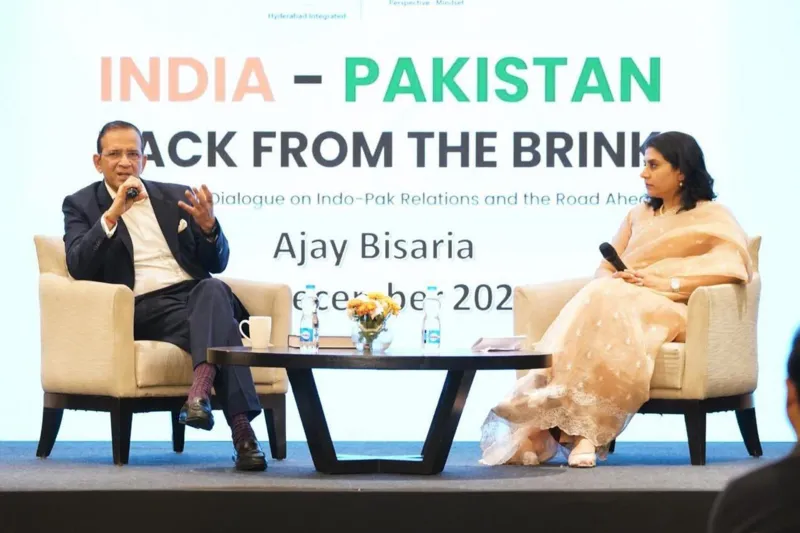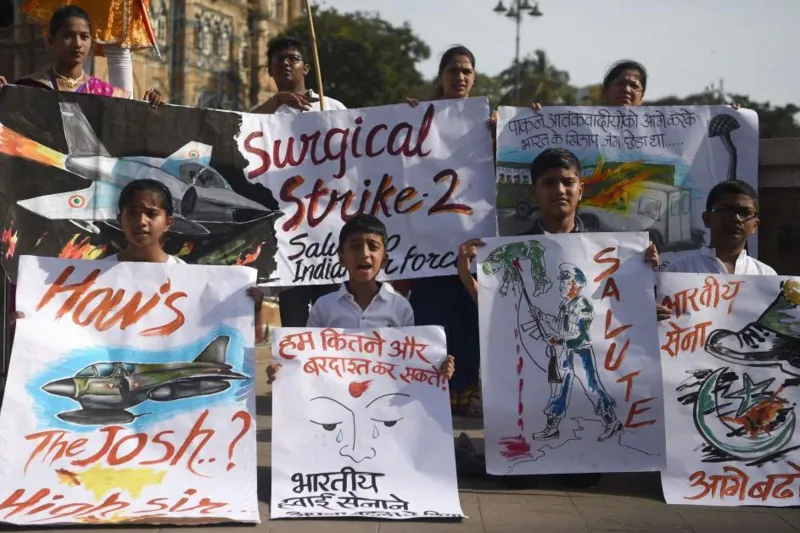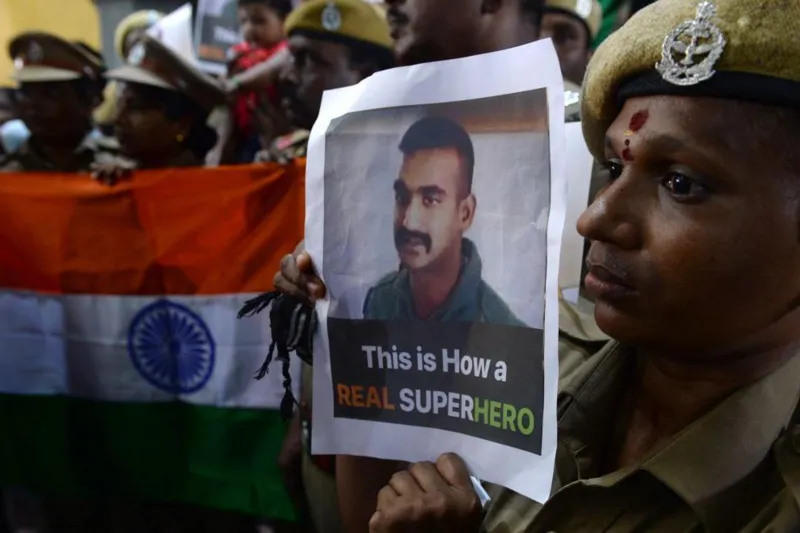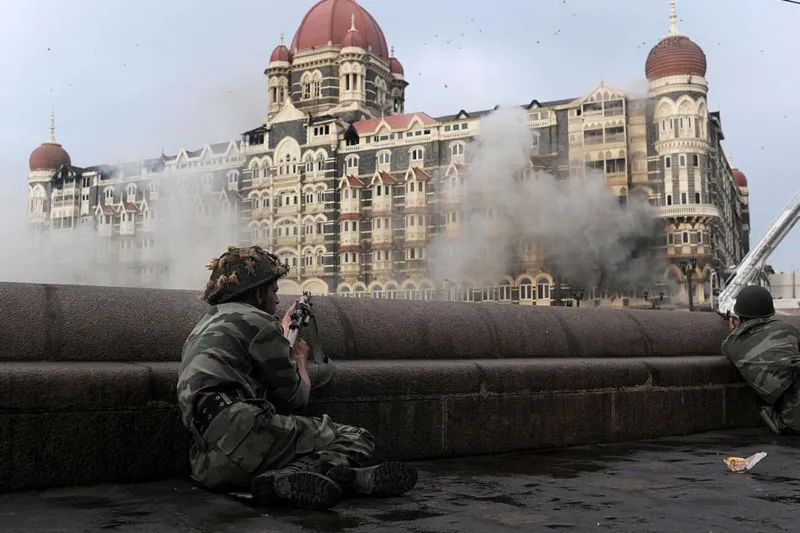The latest militant assault in Pahalgam, inside Indian-administered Kashmir, which claimed the lives of 26 civilians, has reopened previous wounds and revived acquainted considerations amongst India’s safety and diplomatic institutions.
Such incidents echo a troubling sample. In 2016, after 19 Indian troopers had been killed in an assault in Uri, India responded by finishing up “surgical strikes” throughout the Line of Management, concentrating on what it described as militant camps on the Pakistani facet.
In 2019, a suicide bombing in Pulwama took the lives of 40 Indian paramilitary personnel, resulting in Indian airstrikes in Balakot—deep inside Pakistani territory. This marked the primary such offensive since 1971 and triggered retaliatory actions, together with an aerial confrontation.
Even earlier, the devastating 2008 Mumbai assaults—a three-day siege concentrating on lodges, a railway station, and a Jewish centre—left 166 folks useless and shocked the nation.
On every event, New Delhi has pointed fingers at militant teams primarily based in Pakistan, accusing Islamabad of both supporting or turning a blind eye to their actions—an allegation that Pakistan has persistently denied.
Since 2016, and significantly after the 2019 airstrikes, the brink for army escalation has noticeably shifted. Cross-border strikes and aerial assaults by India have turn out to be extra frequent, typically leading to countermeasures by Pakistan and heightening tensions in an already fragile area.
Analysts recommend India is as soon as once more navigating a fragile path between measured retaliation and full-scale escalation—a balancing act between deterrence and diplomacy. One particular person accustomed to this recurring cycle is Ajay Bisaria, who served as India’s excessive commissioner to Pakistan through the Pulwama disaster. He later chronicled these turbulent occasions in his memoir, Anger Administration: The Troubled Diplomatic Relationship between India and Pakistan.

“There are clear similarities between the aftermath of the Pulwama incident and the latest killings in Pahalgam,” stated Mr. Bisaria throughout an interview performed ten days after the newest assault.
Nonetheless, he identified a big distinction. Whereas Pulwama and Uri primarily focused army personnel, the Pahalgam attack was geared toward civilians—particularly vacationers from totally different components of India—bringing again painful reminiscences of the 2008 Mumbai assaults. “This incident comprises facets paying homage to Pulwama, nevertheless it resembles Mumbai much more,” he noticed.
“We discover ourselves as soon as once more in a state of heightened battle, and the sample seems all too acquainted,” Mr. Bisaria added.
Within the days following the assault, the Indian authorities responded swiftly with a collection of countermeasures. Authorities shut down a significant border crossing, suspended a important water-sharing settlement, expelled Pakistani diplomats, and restricted visa issuance for Pakistani residents—lots of whom had been ordered to depart the nation inside days. Skirmishes involving small-arms hearth have additionally damaged out alongside the border.
Moreover, India banned all Pakistani plane—each civilian and army—from coming into its airspace, in response to an analogous ban earlier imposed by Pakistan. In flip, Pakistan applied reciprocal visa suspensions and formally paused a peace treaty courting again to 1972. The long-standing dispute over Kashmir—a area each nations declare in full however management in components—stays a central level of competition between the nuclear-armed neighbors, whose rivalry dates again to the 1947 partition.

In his memoir, Mr. Bisaria displays on India’s swift and strategic response following the Pulwama assault on 14 February 2019.
He recollects being urgently referred to as to Delhi the following morning, because the Indian authorities promptly revoked Pakistan’s “most-favoured-nation” commerce standing—an association in place since 1996. Shortly after, the Cupboard Committee on Safety (CCS) imposed a 200% customs responsibility on Pakistani imports, successfully reducing off commerce. Moreover, business exchanges by means of the Wagah land border had been suspended.
In line with Mr. Bisaria, the federal government additionally thought-about a wider vary of actions geared toward scaling again diplomatic and cross-border engagement—most of which had been finally carried out.
These included halting the Samjhauta Categorical, a key rail hyperlink between the 2 nations, and a bus service connecting Delhi and Lahore. Scheduled conferences between border safety officers had been postponed, and talks in regards to the Kartarpur hall—an essential pilgrimage route for Sikhs—had been placed on maintain. Visa processing was stopped, cross-border journey was blocked, and flights between India and Pakistan had been suspended.
Reflecting on these developments, Mr. Bisaria writes: “Constructing belief was painstaking and sluggish. But, dismantling it took solely moments.”
He emphasised how years of diplomacy and confidence-building could possibly be undone instantly—”crossed out on a yellow notepad in minutes.”
India additionally diminished its diplomatic presence in Islamabad in phases, reducing the variety of officers from 110 to 55 in June 2020 after a separate diplomatic dispute. Following the Pahalgam incident, that quantity was additional diminished to only 30.
Within the rapid aftermath of the Pulwama bombing, India launched a diplomatic marketing campaign. Then international secretary Vijay Gokhale briefed representatives from 25 nations—together with main powers such because the US, UK, China, Russia, and France—on the involvement of Jaish-e-Mohammad (JeM), the Pakistan-based group that claimed duty for the assault. India additionally accused Pakistan of using terrorism as an instrument of state coverage. JeM is listed as a terrorist group by India, the United Nations, the US, and the UK.

India intensified its diplomatic marketing campaign on 25 February, ten days after the Pulwama assault, by urgent for the United Nations sanctions committee to formally record Jaish-e-Mohammad (JeM) chief Masood Azhar as a delegated terrorist. Concurrently, New Delhi pushed for his inclusion on the European Union’s impartial terrorist watchlist.
Though there was inside stress to scrap the Indus Waters Treaty—a big settlement governing water sharing between India and Pakistan—India selected as an alternative to restrict its cooperation strictly to the treaty’s phrases, withholding any data past what was required. Mr. Bisaria notes that 48 bilateral agreements between the 2 nations had been reassessed for potential suspension. Moreover, an all-party assembly held in Delhi concluded with a unanimous decision condemning the assault.
Regardless of rising tensions, important traces of communication remained lively. The army hotline between the Administrators Basic of Navy Operations (DGMOs) continued to operate, permitting direct contact between armed forces. Diplomatic ties by means of each nations’ excessive commissions had been additionally maintained. As in comparable previous incidents, Pakistan dismissed the assault as a “false-flag operation.”
On the bottom in Kashmir, Indian authorities launched a clampdown much like earlier operations, arresting greater than 80 people believed to be “overground staff”—locals suspected of aiding JeM militants with logistics, shelter, or intelligence. Then Dwelling Minister Rajnath Singh visited Jammu and Kashmir, whereas intelligence dossiers outlining the assault and its suspected planners had been compiled.
Throughout a gathering with then Exterior Affairs Minister Sushma Swaraj, Mr. Bisaria expressed the view that India’s diplomatic toolkit for responding to terrorist assaults was restricted. He recollects her implying that decisive motion was imminent, after which diplomacy would tackle a higher function.
That anticipated transfer got here on 26 February, when India launched airstrikes throughout the worldwide border for the primary time since 1971, concentrating on a JeM coaching facility in Balakot.
Inside six hours, India’s international secretary issued a press release claiming the airstrikes had eradicated a big variety of militants and senior operatives. Pakistan, nonetheless, promptly denied these assertions. The developments triggered one other collection of high-level technique conferences in New Delhi.

The disaster intensified sharply on the morning of 27 February when Pakistan carried out retaliatory airstrikes in response to the Indian air raids.
Throughout the ensuing aerial confrontation, an Indian fighter plane was shot down, and the pilot, Wing Commander Abhinandan Varthaman, was captured after ejecting and touchdown in Pakistan-administered Kashmir. His seize by Pakistani forces sparked a wave of tension and nationwide concern throughout India, considerably elevating the stakes in an already risky standoff between two nuclear-armed states.
In line with Mr. Bisaria, India swiftly activated a number of diplomatic channels, with the US and the UK partaking Islamabad to defuse the scenario. New Delhi’s message was unequivocal: any hurt to the captured pilot or additional escalation would provoke a robust Indian response.
On 28 February, Pakistani Prime Minister Imran Khan introduced that the pilot could be launched, framing the choice as a gesture of goodwill to ease rising tensions. Wing Commander Abhinandan was handed again to Indian authorities on 1 March underneath the protocols usually adopted for prisoners of conflict.
By 5 March, following the Pulwama bombing, the Balakot airstrikes, and the return of the pilot, tensions had begun to ease. The Indian authorities, signaling a pivot towards diplomacy, determined to reinstate its excessive commissioner to Pakistan.
“I returned to Islamabad on 10 March, 22 days after departing within the rapid aftermath of the Pulwama assault,” Mr. Bisaria recounts. “What had been essentially the most critical army escalation since Kargil had successfully concluded inside a month.”
He displays that each nations emerged with their narratives—India having met its strategic and army objectives, and Pakistan presenting the pilot’s launch as a diplomatic win for home consumption—whereas nonetheless leaving room for conventional diplomacy to renew.

Mr. Bisaria described the scenario as each “difficult and deeply partaking” from a diplomatic perspective. What units the present disaster aside, he factors out, is that the victims had been Indian civilians reasonably than safety personnel, and the assault came about at a time when circumstances in Kashmir had notably improved—an irony that underscores the shock of the incident.
He believes that some stage of escalation is sort of unavoidable in such circumstances, but in addition notes a parallel need inside the authorities to keep away from uncontrolled escalation. Throughout conferences of the Cupboard Committee on Safety (CCS), he explains, there’s a aware effort to evaluate the broader financial implications of any retaliatory motion and to decide on responses that penalize Pakistan with out inflicting important fallout for India.
“The tone and visuals resemble earlier crises,” he observes, however provides that essentially the most consequential growth could possibly be India’s warning to rethink the Indus Waters Treaty. “Ought to India comply with by means of, it might have profound and lasting repercussions for Pakistan,” he emphasizes.
Mr. Bisaria additionally reminds that the scenario stays fluid: “We’re nonetheless navigating an lively disaster. No army motion has taken place—not less than, not but.”
For extra trending information keep in contact with share4all.cc



















 Animals
Animals
